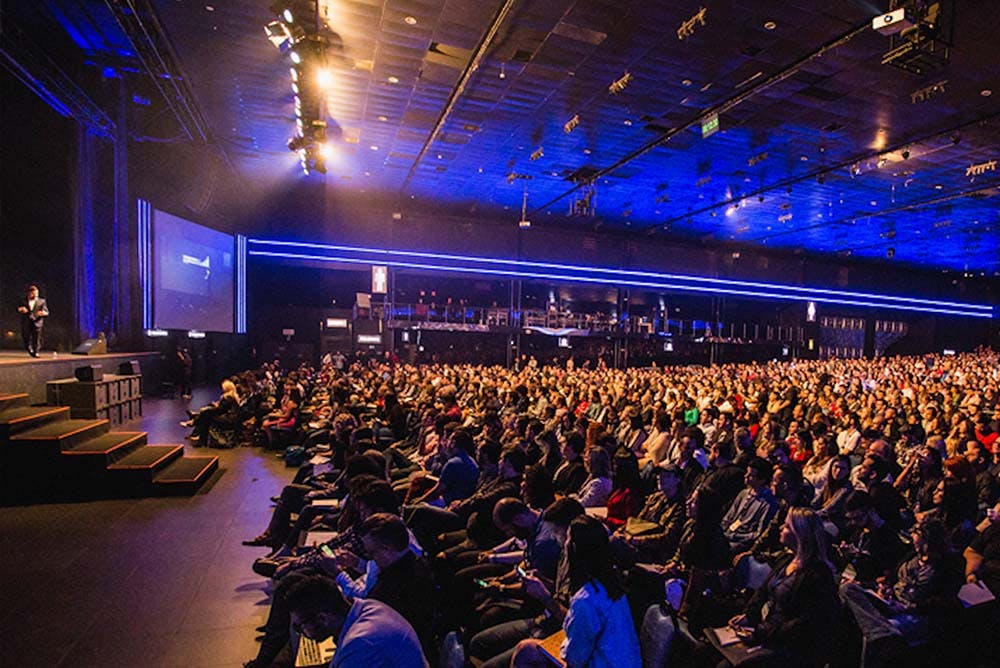
Industry Trends: What to Expect at 2022 Events
The event landscape has changed tremendously over the past two years due to the pandemic. But as always, people have adapted to the new circumstances and are making the best of the given situation.
The future of events is a question that's being asked by many people in the industry. There are different opinions on what the future of events will look like, but there are a few trends we are seeing emerge. So, what to expect in 2022?
Hybrid events are here to stay and will continue to grow in popularity
Hybrid events became a thing out of necessity, but they brought with them a whole range of benefits. They combine the best of both worlds providing a mix of a physical and digital event experience.
Hybrid events are growing in popularity because they give companies a chance to create an intimate experience with their in-person attendees, while still being able to expand their reach to thousands of people online.
Hybrid events also provide much better event data than in-person events, giving you a better understanding of how your event content is being consumed. At the same time, they offer an enhanced ROI and even leave a significantly lower carbon footprint.
They are a great way to increase your customer base, get feedback for development of new products, or even just entertain your employees who are working remotely.
Hybrid events are the perfect type of event for inclusivity, and with the rise of technologies focused on making them more interactive and engaging, we don't see them going away anytime soon.
In-person events are gearing up to make a comeback
We all remember the good old days when we could host live events freely without concerns of jeopardizing our health. With people gradually getting more comfortable with meeting face to face and restrictions slowly easing up, in-person events might be back in full swing sooner than we know it.
However, considering the convenience of attending events digitally, live events will need to focus more on quality of the content and creating an intimate experience to encourage people to attend them in person. Live events will tend to focus more on lower-funnel objectives and spending quality time with leads who are closer to becoming clients.
Nothing beats engaging with people face to face, so most event planners are looking forward to bringing back in-person events as soon as it is safely possible. These will be highly personalized events with a focus on building close connections and trust with a smaller select audience.
Virtual events will become more frequent
The past two years have opened people's eyes to the convenience of both organizing and attending virtual events. Prior to the pandemic, most companies organized one or two large in-person events per year, with all the complex logistics and high costs involved.
Now, companies have realized the benefits of holding smaller virtual events more frequently, at a fraction of the cost, covering a whole range of topics. The expanded reach of virtual events makes them great for increasing brand awareness, providing the latest content and keeping in touch with customers.
Virtual events are also great for creating content that provides value beyond the actual event. Event content can be repurposed for retargeting attendees and reaching new people in your target audience.
Virtual events are inclusive and allow your guests to join from the comfort of their home, but they also enable you to hire experts and guest speakers from anywhere in the world who may be tough to book for in-person events.
Event technologies and augmented reality are on the rise
With virtual and hybrid events still dominating in 2022, event professionals are always looking for ways to make them more engaging and memorable. This is where emerging technologies and augmented reality come in.
Augmented reality has become more affordable and accessible with AR apps that can now be used on most smartphones. AR offers a whole range of possibilities allowing you to add digital elements to the real-world environment.
AR event planning tools let you create interactive product demos, interactive maps or virtual tours of your events. They also enable creative networking opportunities and interactions with other event attendees, and the experiences they provide can be highly entertaining.
Apart from AR, companies will continue to use an increasing number of software and platforms to run their virtual and hybrid events to provide their attendees with meaningful and memorable experiences.
Health and safety will continue to be an imperative
With the gradual return of in-person events as well as hybrid events with a live component, health and safety protocols will continue to be paramount.
This includes assessing all the risks and taking necessary precautions such as cleaning the venue more frequently, ensuring proper ventilation, having seating arrangements that are in line with safety guidelines or limiting the number of people.
Until we are completely in the clear regarding the pandemic, checking the vaccination status of in-person attendees, requiring negative PCR tests or organizing rapid on-site testing will still be the norm at 2022 events.
Social issues are making a big impact
People are expecting more from brands when it comes to their attitudes and actions regarding important social issues. Companies are expected to have a strong commitment to promoting diversity, equity and inclusion, so this will also be an important theme of successful 2022 events.
The other big focus is on sustainability and organizing eco-friendly events. The events industry has traditionally created a lot of waste, from plastic water bottles and disposable cups to catering waste and merchandise that all end up in landfills.
Virtual and hybrid events already do a good job of reducing their carbon footprint because they remove the need for travel, but effort will also be placed on creating more sustainable in-person events. This includes adopting practices such as using biodegradable alternatives instead of plastics, repurposing items and materials, or donating leftover food to local charities or shelters.
Well, there you have it. We hope these trends gave you a good idea of where the events industry is headed and what to expect in 2022. But bear in mind that we are still facing a bit of uncertainty moving forward in 2022 and that some new trends may also emerge.
So, when planning your next event, be sure to stay on top of the latest local guidelines in your area, and be flexible and ready to adapt to any changes if necessary.
